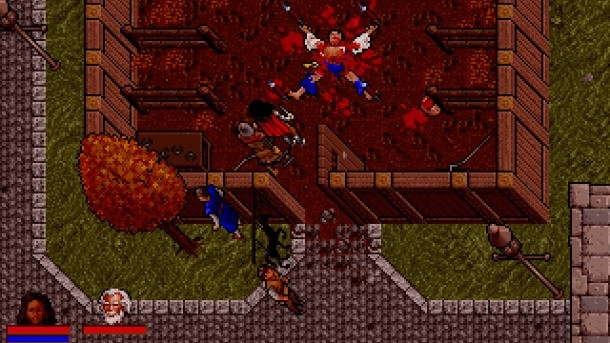Exploring Freedom In Ultima VII: The Black Gate

Growing up during the Nintendo Entertainment System era, my first taste of role-playing games came courtesy of Final Fantasy and Dragon Warrior, the second of which new Nintendo Power subscribers received for free alongside a huge guidebook. These games introduced me to the addiction of exploration, level progression, and turn-based combat. But when I look back at the RPG that left the biggest impression on me as a young gamer, Ultima VII: The Black Gate stands out.
This DOS title, which released in 1992, changed my perspective of what was possible in video games. The game begins in an unconventional fashion, with a demon appearing on screen proclaiming dominion over Britannia. Stepping through the moongate into the world, the journey starts with a murder investigation in the quaint village of Trinsic. After a blacksmith is found brutally murdered in a ritualistic fashion, the mayor tasks the player with finding the culprit. With minimal handholding from the developer, you must chat up the local villagers to find clues and piece together what happened.

Exploring the village for the first time, I realized this game didn’t behave the same way as previous role-playing games I had played. When interacting with villagers, my dialogue choices were determined by other things I had seen or done in the world. No objects were nailed down in the various buildings – I could interact with nearly everything. Want to steal all of a villager’s possessions? Nothing is stopping you (except maybe a companion A.I. turned off by your nefarious deeds). What happens when you pour a bucket of blood over the head of an unsuspecting villager? Go ahead and find out! The prospect for hijinks was unrivaled.
Much like the Radiant A.I. that drives NPC behavior in modern Elder Scrolls games, all of the characters in Ultima VII had daily schedules, waking up in the morning to start their daily work, heading to the pub at nightfall to grab dinner, and eventually return to their abodes. This was the first time I had encountered a world that didn’t exist purely to advance my cause as the player. Much like I do in modern games like Grand Theft Auto and Skyrim, I sometimes stopped to observe the world going about its business, oblivious to my presence. Not every person I encountered expected me to save the world, and that anonymity was empowering in a way I hadn’t experienced in video games before.

This sense of freedom opened up even more after leaving the city limits and venturing into the wider world. A main quest line existed, but this was the first time I remember being free to do what I want. You could essentially neglect the main narrative and create your own stories by exploring every corner of the map, gathering new companions, and training to become more skilled. The amount of side quests and secondary plots available in the game was dizzying.
Ultima VII’s world without boundaries left an indelible impression on me as a gamer, and its sense of freedom is still something I admire as I see it spread through many of my favorite modern games.

Get the Game Informer Print Edition!
Explore your favorite games in premium print format, delivered to your door.
- 10 issues per year
- Only $4.80 per issue
- Full digital magazine archive access
- Since 1991









